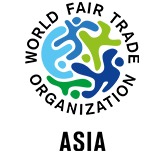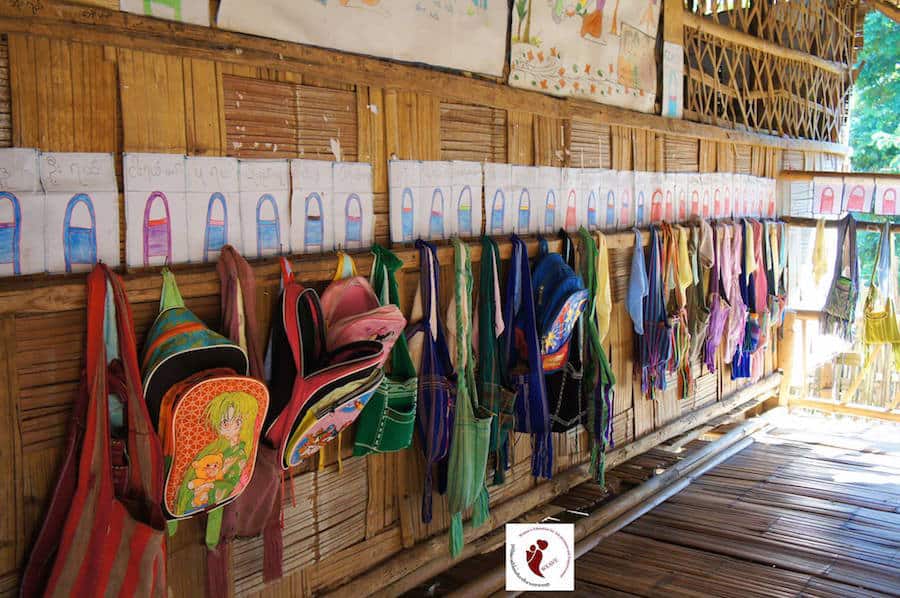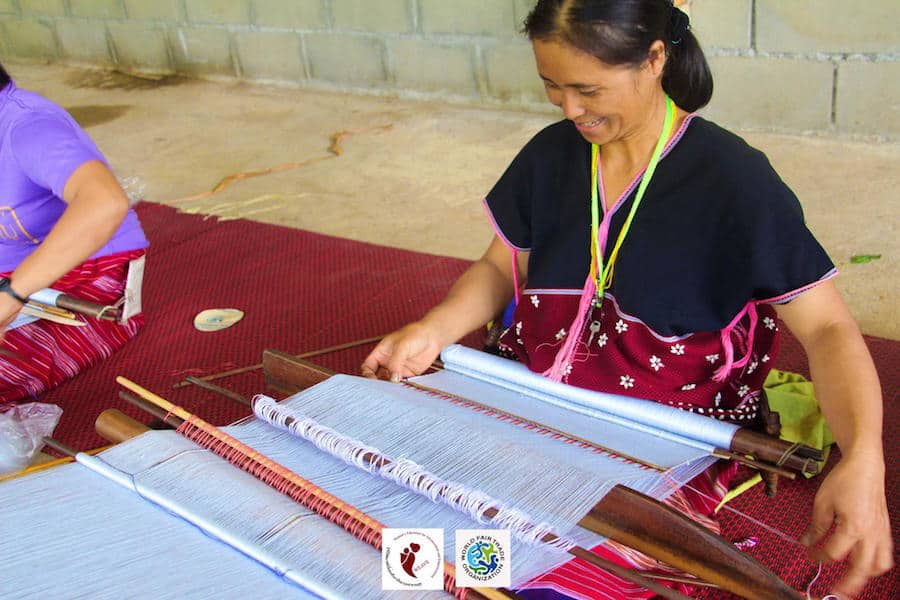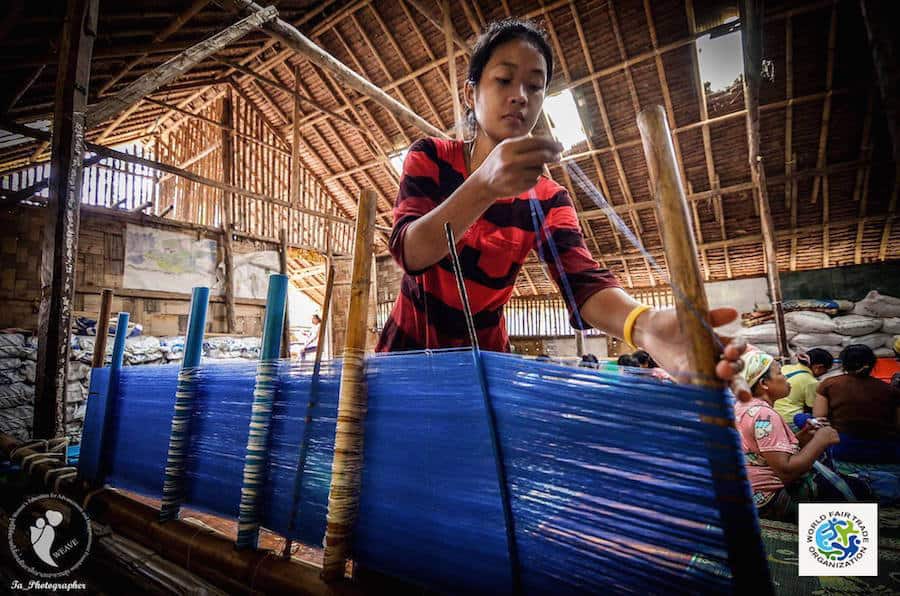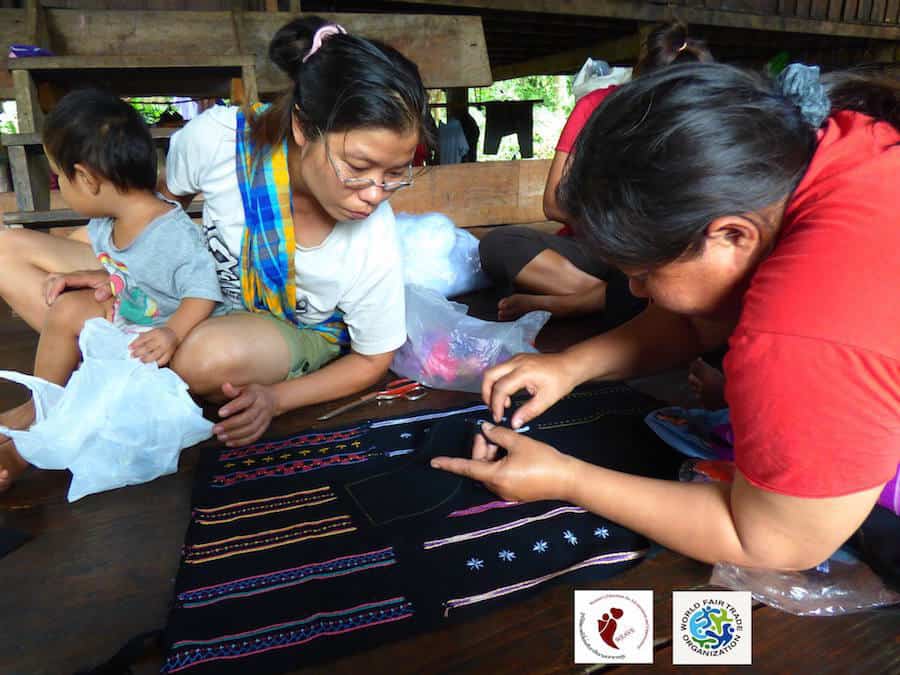
A different world lies beneath our visions as refugees struggle to find any form of identity or belonging in a country that will not accept them. Thousands of Burmese refugees live in camps along the Thai-Myanmar border while organizations like Women’s Education for Advancement and Empowerment (WEAVE) work to give these people a new hope for the future.
Along the Thai-Myanmar border, there are 7 refugee camps, with 4 in Northern Mae Hong Son province, and 3 nearby the western Mae Sot district. Over a hundred thousand Burmese refugees live in these camps, some have lived in the camps for more than 20 years, many have been born there.
Originally, the refugees who resided in these makeshift camps fled ethnic areas in Myanmar for one reason, the civil war that destroyed people’s lives and properties. Yet, over the years, the growing instability inside the country left people with very little choice but to come to Thailand on the following grounds – militant rule, struggle over land rights and the hope to find education opportunities and economic stability in a developed state. For more than 26 years Thailand has provided sanctuary to these displaced people, but the now very restrictive refugee movement has resulted in high dependency of humanitarian aid/relief from International NGO’s. While the democratic reform in Myanmar is welcomed the refugees are uncertain about their future. This is compounded with the talks on refugee returns as well as the shifts in donor’s funding priorities inside Myanmar. With the decline in humanitarian assistance, it is also foreseen that the levels of education and health service provision will be affected. This scenario is expected to increase further, especially for women and children in these refugee camps, as they face daily struggles to find food, work and hope.
WEAVE’s work with refugee women and children started in 1990. In 2004 WEAVE formed strategic partnerships with multi-ethnic women’s groups displaced in Thailand and other surrounding countries of Myanmar. The intent then was to create action-oriented programs that address women and children’s practical and direct needs. They began providing learning and education interventions through early childhood care and development, women’s public health forums, women’s safe income generation, and girls and women’s education, addressing concerns such as violence against women.
One of the most significant contributions that WEAVE brought into the community was economic empowerment and development. In the refugee camps employment opportunities are extremely scarce and poverty is a major issue. According to Ms. Mitos Urgel, Executive Director of WEAVE, “we understood that for refugee women, poverty means more than having little or no income. It means lacking control over their income, even in the family. It means missing opportunities because they lack power and voice. It means missing out because they are undercounted, undervalued, underserved and underrepresented.”
WEAVE felt the necessity and opportunity to offer alternatives, by not only enhancing the traditional craft-making skills of refugee women but also providing the women with safe access to product and small business development, marketing skills and empowering women artisans to possess appropriate tools to fight against marginalization, poverty and gender discrimination.
Maw Soe Meh, a Karenni ethnic woman who lives with her husband and 5 sons in the refugee camp has depended on the relief goods provided by international humanitarian/aid groups for more than 15 years. Yet, the monthly refugee food ration, which contains small portions of rice, soya bean, oil, salt and fish paste, is never sufficient enough to meet the family’s needs. Maw Soe Meh’s involvement in WEAVE’s Fair Trade handicraft project has become an important aspect in her life. Here’s what she had to say: “I started weaving for WEAVE in the last 3 years and, despite the difficulties and challenges, I strived to gather strength by working with other refugee women artisans who are in the same situation as I am. With hard work and determination I am able to bring additional income to supplement our family needs. Most importantly, I have gained confidence in making decisions on how best to spend my income that will greatly benefit my family”.
A neighbour asked Maw Soe Meh ’s husband “How do you feel that your wife is earning all the money instead of you?” to which he replied, “I am proud of my wife and the great work she is doing with other refugee women.” The opportunity that Maw Soe Meh has to provide for her family is breaking down gender-based prejudice in the refugee community, and empowering women who would have otherwise felt oppressed in the past.
As one of the master weavers of WEAVE, she works not only to train women to learn new skills in weaving and in creating new designs, but also encourages them and gives them confidence to fight against gender discrimination. “Reaching out and training more women in creating new designs, creating safe spaces for them to be productive and confident, and helping them to stand on their own gives me a sense of satisfaction. I am happy that I can help others too”, says Maw Soe Meh. Women are now taking on more active responsibilities in their families and communities, and it is stories like these that are changing the face of gender roles and inequality in smaller and isolated communities like the Karenni refugee camps.
WEAVE is actively run by 14 dynamic multi-ethnic staff members across its three offices in Chiang Mai, Mae Sod and Mae Hong Son. Committed to gender equality, the organization is working to advance the rights and dignity of marginalized, oppressed, poor and exploited women and children from Thailand, Burma and some regions in Asia. Currently, their projects are located in 4 refugee camps and Thai Villages along the Thai-Myanmar border.
In the future WEAVE aims to expand their market and bring more women onto the economic empowerment and development program. As a member of WFTO-Asia, WEAVE embodies all 10 principles of Fair Trade and provides new hope and opportunity to many women in need.
By purchasing Fair Trade products through the WEAVE website, you help empower refugee women like Maw Soe Meh and Maw Lu Meh to live life with dignity and access future opportunities for the development of their community.
By Bianca Caruana, The Altruistic Traveller
